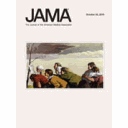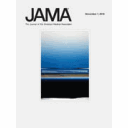Chlebowski R, et al. Estrogen plus progestin and breast cancer incidence and mortality in postmenopausal women. JAMA. 2010; 304 (15):1684-1692
Combined oestrogen and progestin HRT is associated with increased risk of invasive breast cancer, node-positivity, and all cause mortality.
Tag: JAMA
Mar 16 2011
HRT and breast cancer incidence and mortality
Permanent link to this article: https://evidencebasedmedicine.com.au/?p=1062
Mar 09 2011
Escitalopram for hot flushes in menopausal women
Permanent link to this article: https://evidencebasedmedicine.com.au/?p=1075
Permanent link to this article: https://evidencebasedmedicine.com.au/?p=1046
Mar 02 2011
DHA on maternal depression and neurodevelopment
Makrides M, et al. Effect of DHA supplementation during pregnancy on maternal depression and neurodevelopment of young children: a randomized controlled trial. JAMA. 2010; 304(15): 1675-1683
DHA supplements in the later half of pregnancy are not associated with improvements in maternal depression or infant neurodevelopment.
Permanent link to this article: https://evidencebasedmedicine.com.au/?p=989
Permanent link to this article: https://evidencebasedmedicine.com.au/?p=1264
Permanent link to this article: https://evidencebasedmedicine.com.au/?p=162





Recent Comments